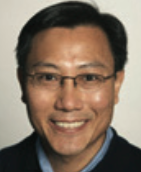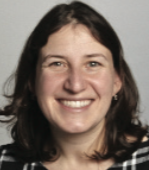By Andrew Leader (entering class of 2014)
It was a chilly winter afternoon, the wind blowing softly with hints of pine and paprika, when I stepped off a middle-bank elevator into 23-02. This office houses members of Mount Sinai’s Infectious Diseases faculty. With the recent appointment of two of its members, Benjamin Chen and Talia Swartz, as MD/PhD program Associate Directors, the office has transformed into a de facto command center, where key decisions are made which will impact the program for years to come. I sat down with Ben and Talia to get to know them better. Here’s what happened.
Benjamin Chen, MD, PhD
Tell me about your hobbies!
I love running in Central Park. I’ve run the 6 mile loop on Saturdays and Sundays the last few years. I also love to ski.
Do you have a favorite movie?
I do watch a lot of movies. I’m into artsy, slow-pace movies. Room with a View–one of these old classics–more of a romantic “chick flick.” I tend to be kind of a sucker for good drama.
Do you have a favorite scientist or discovery?
One of my favorite discovery stories is the cloning of the recombination activating genes by David Schatz. It’s a story of tenacity, stubbornness, and luck. How he went from hypothesizing that there was an activity that you could clone by expression cloning to actually doing it was a real miracle of science in a way, because there was a lot of good fortune involved. That was a discovery that brought my attention to David Baltimore, who would become my thesis mentor.
What has been the biggest professional challenge you’ve had to overcome?
Starting a lab as a postdoc after my PI had just been recruited to become the head of Merck Research Labs. I wasn’t quite ready to start a lab; I always thought that I would do a longer postdoc so I would have a larger body of work when applying for faculty positions. But in the end, my mentor was extremely helpful. I was able to publish a first author paper from the postdoc and get a job [at Mount Sinai, 12 years ago].
Let’s talk about your research.
We’re interested in cell-cell transmission of HIV. In all the textbooks, it’s shown that it’s the viremia that is causing this widespread immune depletion. We do a lot of live cell imaging, and we see that viral proteins are redirected as a function of cell-cell adhesions, and they form very coordinated structures that both participate in viral assembly and facilitate viral uptake. I think this model gives us the opportunity to think about transmission in a very different way; it demonstrates how the virus exploits the immune system in a really fundamental way, and may explain why it’s so hard to make a vaccine.
What has your role been in the program so far, and how is that role evolving as we transition to Dr. Baron’s leadership?
Lisa Satlin, the director at the time, invited me to my first retreat when I arrived here twelve years ago, and since then I’ve been involved in admissions, as a member of the MD-PhD steering committee, and also as a preclinical advisor. I’ve been to a majority of the retreats, and that’s where I’ve gotten to know a lot of students. When I was approached this past year by Eric Nestler to serve as an associate director, I was really happy to do so, and I am also excited to work with Margaret [Baron]. I am more focused on the preclinical aspects of the MD/PhD program–the interface between medical school and graduate school, making sure that students find out who their advisors are, find the right labs to join, and connect to other potential mentors. I am excited to help design a more cohesive, streamlined and MD/PhD-specific curriculum. The medical school curriculum has changed, and I think it’s clear that the MD/PhD curriculum needs to change in response to that.
Do you have a vision for the MD/PhD program? What does it entail?
From the NIH we’ve heard that, overall, MD/PhD training is too long. But at the same time, you don’t want to cut corners. It’s appropriate for students to come in and not know exactly what they want to do, but MD/PhDs love keeping things open ended. Identifying what it is you want to do with your career and closing some doors can be just as enabling and empowering as keeping them open. I think part of that for me was a decision not to do residency. If you can differentiate yourself from affiliating with a particular path, sometimes it’s better to just put all your eggs in that basket and start cooking. I would like to best help our students do that.
Talia Swartz, MD, PhD
Tell me about your hobbies!
I have taken up writing children’s books about microbiology. I was reading to my kids, and the books we were reading were really stupid—like princesses not liking their shoe color. I wrote two books: ABCs for I.D. Fellows – why can’t we learn the ABCs and something about Enterococcus at the same time? And Floor Flora was based on the concept that it’s not a good idea to eat food off the floor in the hospital. They’re not bestsellers. They’re not really intended to sell.
Do you have a favorite scientist or discovery?
Mary-Claire King was just getting started in her career, and had to go to the NIH for a reverse site visit for a large grant. She almost had to abandon her travel plans so she could take care of her daughter. Her mentor helped her out and said “We’ll take care of it. Bring your daughter with you, and we’ll make it work out.” She did, and the grant she obtained funded the work leading to the discovery of the BRCA1 gene. She’s an amazing scientist and was awarded the Lasker Award for her career achievements.
What made you want to do the MD/PhD track, and when did you decide on it?
I was a counselor in summer camp, and it was just not for me. I remember speaking to the director, and she said, “What would you prefer doing?” I said, “I want to be in a lab!” That following summer was the first time I was in a lab. I was 15 and I was doing some structural anatomic neuroanatomy lab work here at Sinai. I actually met Jeffrey Laitman at that time. He was awesome even then. There were some MD/PhD students, too. They were talking about their career goals and what they wanted to do, and I thought, that’s cool, that’s exactly what I want to do.
Can you give me a summary of your research?
I’m interested in the inflammation that accompanies chronic HIV infection. I wanted my work to be directly related to a clinical problem, and I wanted to work on a relationship between the host and pathogen that you could study longitudinally. I’m interested in this signaling pathway through purinergic receptors, which are extracellular nucleotide receptors that mediate pro-inflammatory cytokine production. We’ve shown that if you block these receptors, you can potently block HIV infection, and we think that these may be a novel class of drugs that would target both antiviral activity and the associated downstream inflammation.
What has your role been in the program so far, and how is that role evolving as we transition to Dr. Baron’s leadership?
My first role in the program was as a student. Upon becoming a fellow, I was a junior advisor for a couple of years. I started co-directing the clinical refresher course three years ago, and that’s exciting for me because I was in the first class that took the clinical refresher. I was an assistant director last year and was appointed as associate director this past September. My role has primarily involved advising and helping students transition from the PhD years to the MD-3 and -4 years. It’s important that our students are successful during their clinical years so they can get into the programs of their choice after graduation.
Do you have a vision for the MD/PhD program? What does it entail?
Complicated transitions are a natural fact of life in this training. Our goal is to ease the transitions, and to make it so you’re prepared for the next step. I also think it’s important to recognize that these are transitions because you are bridging two different disciplines. You have the luxury of being able to immerse yourself in medical school, then immerse yourself in graduate school, then immerse yourself back in medical school, and those will actually be great times because they will be the last time that you are really able to be totally protected in one discipline. But if the solid foundation from your training is strong, then you’ll be able to deal with the juggling better than you would otherwise.
Anything to add?
I had a great time as a student. My classmates were amazing. We say we gave our twenties to this program. It was a great decade. You have to have fun. You can’t only work all the time, you have to balance it with some fun, too. Or you can work, and have fun at the same time, which is what we used to do. We used to go out to a bar and study anatomy with beer.
